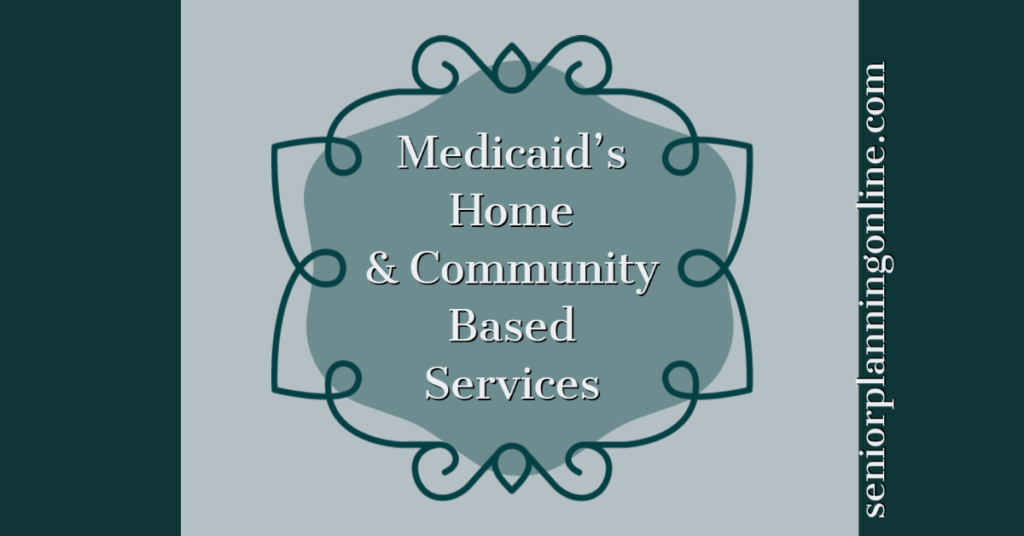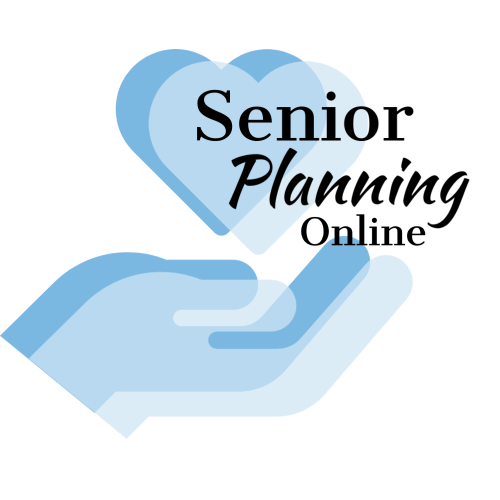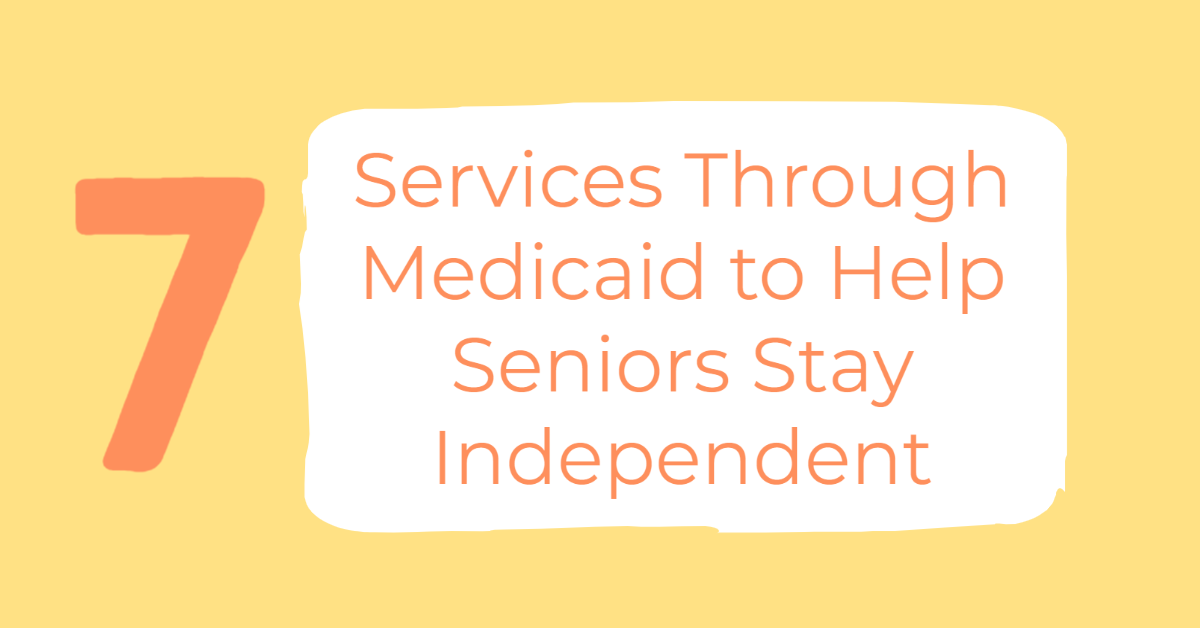As we age, our independence can start to dwindle.
Things we were once able to do become more difficult and we may need some assistance.
If you or someone you know is starting to need more help, there are several options you can look into.
As a hospital social worker, I let patients and their families know that maintaining an individual’s independence is vital to their quality of life. It is my goal to help their homes and be as independent as possible while remaining safe.
Unfortunately, people just don’t know how to make that happen or what resources are available.
One big resource is Medicaid health insurance. It offers some services that can help seniors stay independent in their homes safely.
To find out how to qualify for Medicaid, check out our post “The Difference Between Medicare and Medicaid”.
Medicaid Benefits for Seniors and Individuals Who Have a Disability
Medicaid benefits vary State to State. However, most if not all offer the following services under Medicaid for Seniors and Individuals who have a disability.
- Inpatient and Outpatient hospital services
- Home health services
- Home and Community Based Services
- Physician services
- Laboratory and X-ray services
- Transportation to medical care
- Prescription Coverage or Assistance
- Long Term Care Nursing Home
- Hospice
I’m mostly going to review the Home and Community Based Services (HCBS). HCBS is a program through Medicaid meant to help individuals maintain independence in their homes.

Medicaid and Home and Community Based Services (HCBS)
Medicaid offers the Home and Community Based Services program. As I said, most if not all States have this program or a version of this program. The program may be called something different but the services are generally the same.
Standard Services in HCBS can include a combination of medical and non-medical services.
7 Services offered by HCBS can help individuals maintain a sense of independence remaining safe.
It’s important to know that to be eligible for any of these services through HCBS, there are two main criteria that have to be met.
- You meet the eligibility criteria to apply for and be approved for Medicaid.
- You are requiring assistance with 2 or more activities of daily living.
Activities of daily living (ADL’s) are things like, bathing, dressing, toileting, transfers (to and from seated position or to and from lying position), personal hygiene and mobility.
In addition to meeting the 2 criteria above, your State may have some additional requirements. Overall, every State offers the 7 services below through the HCBS program.
Home Health Aid
A home health aide is usually a certified nurse’s assistant or other certified caregiver that can assist with ADLs.
Home health aids can help get individuals dressed, bathed and toileted in the in the home.
They can help the individual with personal hygiene tasks like washing their face, shaving, and hair grooming.
Additionaly, they usually are knowledgeable in safely assisting with transfers either using a gait belt or a patient lift.
These aids are usually not available as a live-in caregiver and are not meant to provide 24/7 round the clock care. Depending on what State you live in and the criteria they have, you may only receive 5 hours to 40 hours a week in home health aid services.
Personal Care provider or Caregiver
Personal Care provider or Caregiver can be someone who assists with household chores and errands. They may help with cleaning, laundry, cooking, grocery shopping and sometimes taking someone to appointments.
Sometimes a personal care provider/caregiver can also be a home health aid. Often this is the case. It’s much simpler to have the same caregiver provide all of these services.
Visiting Nurse
If someone has some chronic medical needs in addition to their physical needs, a nurse may be provided. The nurse may help with medication management, administering certain medications that need to be monitored, monitoring vitals and complex wound care needs.
Rehabilitation Therapy
Rehabilitation Therapy consist of Physical therapists, occupational therapists and sometimes speech therapists that can work with you to improve mobility, range of motion of your body and swallowing ability.
If you have Medicare, these will be covered under your Medicare Part A benefits. However, if you do not qualify or have Medicare, Medicaid can also cover these services. These services are also known as home health care services.
Check out “Beginner’s guide to home health care services” for more information on these services.
Adult Day Program
An Adult day program is similar to a Child Day Care program. It is designed for adults, often the senior population and individuals who have disabilities. It works the same way as child care. You drop your loved one off at the Adult Day program while you go to work or for a few hours while running errands and pick them back up.
The caregivers who run the program are trained to handle a variety of needs and behaviors. They offer activities to help with socialization, mental stimulation and physical exercise.
Respite Care
Respite Care provides temporary caregiving services to give a break and relief to an individual’s primary caregiver.
The word respite literally means to temporarily be relieved from something difficult.
Respite care can be in the form of an in-home caregiver for a few hours (think of a baby-sitter for adults), to time at an adult day program or a short stay in a nursing home.
This service is definitely rendered at the discretion of each State’s Medicaid program. Therefore, make sure you check out your State’s Medicaid website on our Resources Page.
Case Management
If you are enrolled in the HCBS program, you are assigned a case manager.
Your case manager is your point of contact during your enrollment.
They are the person you call if you need additional services, need to make any changes with the caregiver you have, or want to change anything in your program. They are there to help you get the care you need.
Medicaid HCBS Eligibility
Each State’s eligibility is different. Some states may require an additional income criteria to be met.
A State’s eligibility may consider certain diagnosis, age and disabilities or medical ailments.
In addition to meeting criteria for the HCBS program, some states may expect a portion of the program to be paid for by the individual requesting the care.
For example:
In Kansas as of 2020, individuals 65 or over who have a single income up to $2,340 per month may meet criteria for the HCBS program, but may have to pay a portion of their care expenses. This could range from $50 to $900 per month. It all depends on their medical and non medical needs and diagnoses.
In Kansas, if an individual has a single income of less than $1100 per month may not have to pay any portion of their care expenses in the program. This payment is waived.
On the other hand, in Colorado it’s different. Individuals 65 or older who are single with an income of $2,000 or less are eligible for the HCBS program and are not required to pay any portion of their caregiving expenses.
They do have a buy-in program available for those who do not meet the $2,000 or less threshold. So those individuals have the option of paying a portion for that care as well.
Home and Community Based Services (HCBS) vs Home Health Care
Although HCBS can provide a lot of the same services home health care provides, there are a couple of key differences.
First, there are only certain home care agencies that are contracted or can accept the HCBS waiver.
This may be limiting if you prefer a certain home health care agency and staff.
Traditional Medicare allows you to choose any home health agency that is CMS certified.
Second, home health care agencies do not provide assistance with household chores and errands.
The Bottom Line
We will all age and lose some sense of independence. If we are the family members of those individuals going through that process, there are resources available to help.
If you have a nice nest egg and retirement income that can help you hire care privately, that’s exactly what you should do.
However, if you don’t have that kind of income, Medicaid can offer services through their Home and Community Based Services program.
This program can provide at least some in-home nursing care and help to keep people in their homes longer.
Make sure you check out your State’s Medicaid website for more details about the services they provide and eligibility criteria.


No responses yet